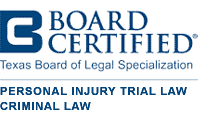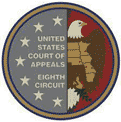
FREE CONSULTATIONS
Fort Worth 817-336-5533
Lubbock 806-491-4911
Default Judgements

A small business man recently called and indicated that a limited liability company he ran had been sued. He had filed a response to the allegations of the complaint with the court and sent a copy to the attorney for the plaintiff. The plaintiff’s lawyer immediately filed a motion to strike the answer and for default judgment on the basis that the response was not a proper answer to the complaint because it failed to follow the requirements of an answer, and because it had not been signed by an attorney. Since the time to file a proper answer had expired, the plaintiff asked the court for a default judgment.
The Supreme Courts of other states have been asked whether a notice of appeal by a corporation signed by an officer of the corporation who was not an attorney was valid. The courts concluded that it was not a valid notice of appeal, and therefore, the appeal was dismissed. There were primarily two bases for that decision; first, under some states’ law and statutes, a corporation, except in small claims court, must be represented by an attorney, and second, in that case, the notice of appeal filed by a person who was not an attorney was determined to be the unauthorized practice of law, that is to say, the practice of law by someone other than a licensed attorney.
Texas, like most states, imposes penalties for the unauthorized practice of law. The unauthorized practice of law is a crime which may result in fines or imprisonment and may be punished as a contempt of court.
While an individual is permitted to represent himself or herself in a lawsuit, a corporation is not an individual. Only a person authorized to practice law may appear in court for a corporation. The only exception is small claims court.
Limited liability companies have been permitted to exist in Texas for many years. LLCs attempt to combine some of the advantages of the partnership form of doing business and the corporate form of doing business. In many ways, LLCs attempt to avoid some of the formalities required of corporations. There are, however, risks when avoiding those formalities if, for example, there is a dispute between the owners, or, as in this recent matter, if a member of an LLC attempts to respond to a complaint. In this recent matter, a proper answer was filed within a day after our firm was retained. In addition, written arguments were made to the court relating to the discretion to be exercised by the trial court as to whether a default judgment was appropriate. Prompt action in filing a proper answer was one factor considered by the court. Significant costs were incurred in order to regain the ability to defend this lawsuit.
Whether an LLC could avoid this holding relating to corporations has not been directly addressed by the Texas appellate courts. We of course would recommend that your business not be the business that has to make those arguments. Those arguments were unsuccessful in a slightly different factual situation. In our recent case, attempting initially to avoid the cost of hiring an attorney resulted in substantially higher costs and the risk that the defendant would be barred from defending the lawsuit. Thus before you try to self-help and answer on behalf of a corporation or an LLC perhaps you should check with a lawyer.


















